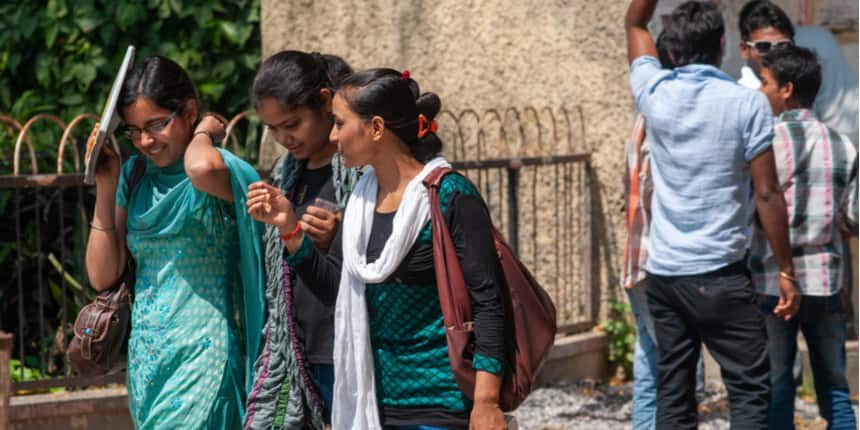Drop confusing ‘deemed university’ tag, amend UGC Act: Parliament Panel
R. Radhika | July 5, 2022 | 12:04 PM IST | 3 mins read
UGC: House panel also advises merging NAAC, NBA; social sciences in technical courses, peer-review for teachers. HECI Bill in Monsoon Session.

NEW DELHI: Reviewing higher education standards in India, a Parliamentary panel has recommended “active consideration” for the demand that deemed universities be allowed to use the term “university” in their names. In May 2020, the University Grants Commission stopped 127 deemed universities from using the term university in their names.
The Parliamentary Standing Committee on Education, Women, Children, Youth and Sports has said in its report that “'deemed university’ creates a lot of confusion in foreign countries as there is no concept of deemed university in many parts of the world”. The panel recommended amending of Clause 23 of the UGC Act, 1956 which states that no institution, other than a university established or incorporated by a Central Act, a provincial act, or a state act is entitled to use the term “university”. Deemed universities are institutions that function like universities but without an underpinning state or central law.
The report, presented on Monday, also calls for measures to bring colleges and universities within the formal accreditation system. Currently, only 30 percent of universities and 20 percent of colleges are accredited. Out of 50,000 colleges, the document stated, less than 9,000 colleges are accredited.
Accreditation is a process through which the government seeks to standardise the quality of higher education and assesses institutions against minimum benchmarks. The committee has raised concerns about the quality of universities and colleges as accreditation is not mandatory.
The panel also recommended a review of “the experiment of providing courses in humanities in technology institutions” to assess its academic impact. It further advised the incorporation of social sciences, humanities, and art modules, in the technical education curriculum for the “well-rounded” development of students, as suggested in National Education Policy 2020.
To avoid the “regulatory gaps and overlaps” the committee said that instead of too many parallel regulatory bodies, a simplified hierarchy must be constituted which will have the final say on the implementation of government rules. For this, the panel asked the government to consider amalgamating the National Board of Accreditation (NBA) and National Assessment and Accreditation Council (NAAC). The NBA currently deals with technical institutions.
Also Read| Universities rated low lag in research, student support: NAAC Chairperson
In the upcoming monsoon session of the Parliament, the government is likely to introduce the Higher Education Commission of India Bill. If passed, the HECI will replace the UGC and become the top higher education regulator in the country.
Teachers' appraisal, promotion
In addition, the committee suggested a system of performance appraisal that will allow students and colleagues to evaluate the performance of teachers in higher educational institutions.
“The committee recommends that at least on an experimental basis a mechanism for ensuring the accountability and performance of faculties in the universities and colleges should be put in place similar to that of foreign universities where the performance of college professors/ teachers is evaluated by
their peers and students. Such performance appraisal would help improve the quality of teaching,” the report said.
Also Read| Private universities don’t see teachers as assets, pay poorly, says former IIT Delhi director
For academic administrators in higher educational institutes, the panel recommended “world-class training programmes”. The committee further recommended that there should be an institutional leadership or a management course for aspiring and existing principals of universities and colleges to give them exposure to the management skills required to lead the institutions.
Higher Education: Choices for students
To take steps to promote flexibility in education, the report said: “The committee, keeping in view the global trend in student learning, suggests that the Department of Higher Education, along with its bodies, must undertake an expert study to help provide avenues towards empowering students to chart their education pathways as per their needs and interest, leveraging traditional and other partnerships to bolster learning and making efforts towards ensuring widespread diffusion of education.”
Also Read| UGC makes collaboration with foreign universities easy; allows 3 types of programmes
Towards this end, the panel has recommended an open curriculum where students, instead of completing their set of core courses, can explore a range of subjects before making a choice. The panel directed the University Grants Commission to explore this.
In March, the UGC issued a new set of guidelines on the four-year undergraduate programme that proposed offering options to choose subjects of preference.
Follow us for the latest education news on colleges and universities, admission, courses, exams, research, education policies, study abroad and more..
To get in touch, write to us at news@careers360.com.